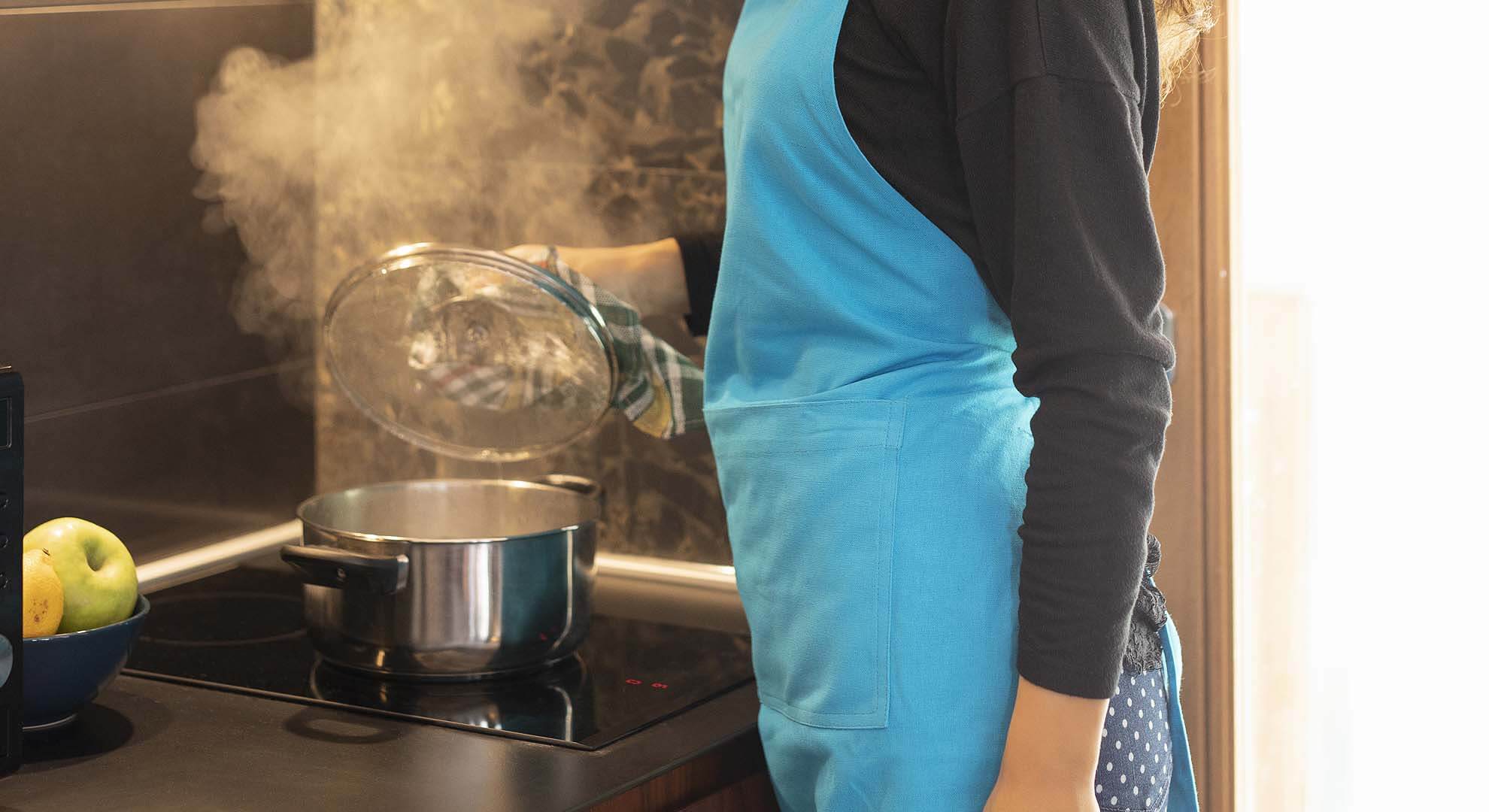
How to save energy in the kitchen
Whether you’re a culinary pro or more of a reluctant chef we all spend a lot of time in our kitchens – and invest a surprising amount of our time and money in the food we prepare and eat.
But have you ever thought about how much energy you use when making dinner? Cooking makes up nearly 14% of the average UK home’s electricity use (The Energy Saving Trust), yet there are some pretty easy ways to bring that proportion down.
Being conscious of energy use in the kitchen is kinder to the planet and can mean a cheaper monthly bill, without compromising the quality of your cooking.
Home Energy Scotland has some great ideas to help you save energy in the kitchen...
Cooking makes up nearly 14% of the average UK home’s electricity use.
Share on
Think twice about water
Boiling the kettle instead of heating cold water to boiling on the hob will save you tonnes of time, and conserve energy. Covering pots and pans is a good tip here too.
Be canny about how you cook
Ovens and hobs will retain their heat for a few minutes after you turn them off as they take time to cool down. Also, look through the glass in your oven door to check on food rather than opening the door lots of times. This lets heat out that would be better used cooking your tea!

Use shortcuts
Could you use the microwave instead of the oven? These often use less energy as they don’t need time to warm up to the correct temperature, and they’re smaller.
Double up
Batch cooking several dishes while you’ve got the oven on anyway and freezing what you don’t need as soon as it's cool will avoid the need for multiple lengthy oven sessions. It’ll also give you a handful of ‘ready-meals’ that’ll be good to eat in minutes when you’re short of time.
Be kind to your appliances
Allow food to cool fully before putting it in the fridge or freezer, as it won’t have to work as hard to keep it cold. Also, keeping your fridge at five degrees or less will mean food keeps for longer, and taking items out in one go instead of on multiple trips will avoid the door being open for extended periods of time.
Good maintenance is key
Keeping at least a 10cm gap behind your fridge to let heat flow away more easily and defrosting your fridge/freezer regularly will make it perform more efficiently.
